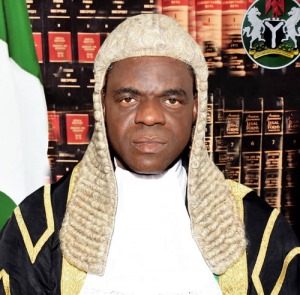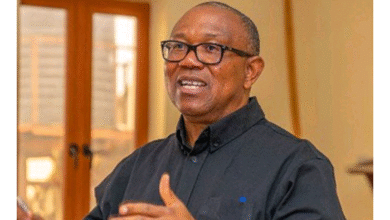
Fresh details have emerged suggesting that the recent allegations of a $5 million bribery scheme levelled against the Chief Judge of the Federal High Court, Justice John Terhemba Tsoho, may be part of a calculated attempt to blackmail and distract the judiciary from an ongoing $1 billion debt recovery dispute involving Nestoil Limited and its affiliates.
Sources familiar with the matter described the claims as baseless and mischievous, designed to divert public attention from the substantive issues in the commercial dispute currently before the court.
The controversy stems from three petitions filed against Justice Dehinde Dipeolu, the presiding judge in the case — one by the fourth defendant and two others by defence counsel Mofesomo Tayo Oyetibo, SAN — addressed to Chief Judge Tsoho, who, in accordance with judicial procedure, directed the trial judge to respond to the petitions within seven days.
The petitions surfaced barely a week after Justice Dipeolu granted a Mareva injunction in Suit No. FHC/L/CS/2127/2025 between FBNQuest Merchant Bank Limited & First Trustees Limited (as Plaintiffs) and Nestoil Limited & others (as Defendants). The order empowered the plaintiffs to take possession of Nestoil’s assets pending the determination of the substantive suit.
However, an independent review of court documents indicates that the ex-parte orders issued on 22 October 2025 in the matter raised several procedural and substantive questions, including:
The orders granted ex-parte were substantially similar to those sought in the Motion on Notice and the Originating Summons, which could be seen as determining the substantive issues before hearing both parties.
The court’s directive extending enforcement support to multiple security agencies — including the Police, Navy, and DSS — went beyond the standard practice in such matters.
Order 5 of the ruling empowered the appointed Receiver to take over and preserve Nestoil’s assets under Receivership, while Order 8 appeared to authorize the Receiver to dispose of assets, including crude oil sales — two provisions seen as contradictory.
The ex-parte orders were granted for a 14-day lifespan, consistent with judicial caution against far-reaching decisions made without hearing from both sides.
In line with due process, Chief Judge Tsoho was said to have requested a written response from Justice Dipeolu within seven days and directed that proceedings be paused temporarily to preserve the integrity of the court and the fair hearing process.
Findings further revealed that the Chief Judge neither suspended nor requested the recusal of the trial judge, contrary to insinuations in some media reports. His action, sources clarified, was strictly within his constitutional and administrative oversight as the head of the Federal High Court.
Judiciary sources described the circulating bribery story as a deliberate act of blackmail and mischief, targeting the Chief Judge’s reputation and the institutional credibility of the Federal High Court.
Stakeholders within the legal community have urged the public to exercise caution and await official clarification, emphasizing that the judiciary remains committed to transparency, due process, and the sanctity of the rule of law.








Solid article. No fluff, just value.
m22yqk